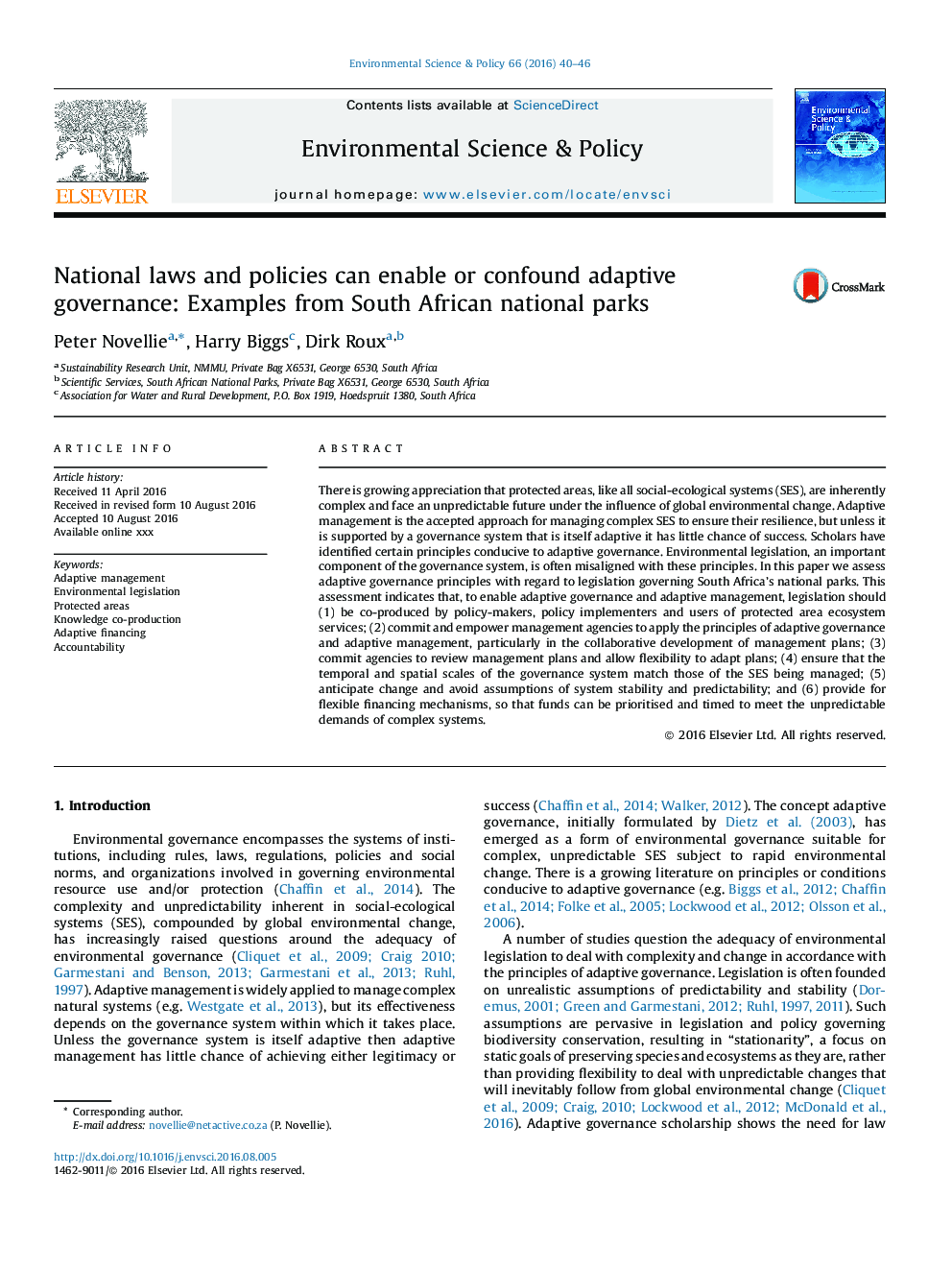| کد مقاله | کد نشریه | سال انتشار | مقاله انگلیسی | نسخه تمام متن |
|---|---|---|---|---|
| 1053404 | 1485042 | 2016 | 7 صفحه PDF | دانلود رایگان |
• Legislation governing South African parks partially supports adaptive governance.
• Requirements for consultative park planning promote diverse inputs and learning.
• Flexible financing provisions enable responsiveness to unexpected outcomes.
• Lack of obligation to review plans limits capacity to learn and adapt.
• Assumptions of stability and predictability constrain adaptation to change.
There is growing appreciation that protected areas, like all social-ecological systems (SES), are inherently complex and face an unpredictable future under the influence of global environmental change. Adaptive management is the accepted approach for managing complex SES to ensure their resilience, but unless it is supported by a governance system that is itself adaptive it has little chance of success. Scholars have identified certain principles conducive to adaptive governance. Environmental legislation, an important component of the governance system, is often misaligned with these principles. In this paper we assess adaptive governance principles with regard to legislation governing South Africa’s national parks. This assessment indicates that, to enable adaptive governance and adaptive management, legislation should (1) be co-produced by policy-makers, policy implementers and users of protected area ecosystem services; (2) commit and empower management agencies to apply the principles of adaptive governance and adaptive management, particularly in the collaborative development of management plans; (3) commit agencies to review management plans and allow flexibility to adapt plans; (4) ensure that the temporal and spatial scales of the governance system match those of the SES being managed; (5) anticipate change and avoid assumptions of system stability and predictability; and (6) provide for flexible financing mechanisms, so that funds can be prioritised and timed to meet the unpredictable demands of complex systems.
Journal: Environmental Science & Policy - Volume 66, December 2016, Pages 40–46
